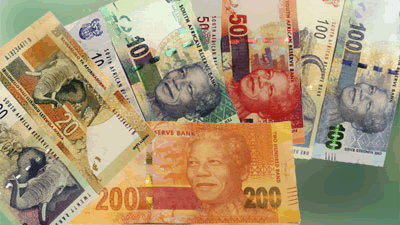South African Rand: ZAR Smashed Lower by British Pound Sterling, EM Exchange Rate Pressures Persist
- Written by: Gary Howes

Another day of hefty declines are being witnessed by the South African Rand courtesy of continued weakness across the Emerging Market currency sector.
A look at the latest forex rates shows:
- The British pound sterling to South African Rand exchange rate (GBP/ZAR) is trading 1.4 pct higher at 18.5577.
- The euro to South African Rand exchange rate is 0.69 pct higher at 15.2780.
- The US dollar to South African Rand rate is trading 0.91 pct higher at 11.184.
Be Aware: All ZAR quotes are taken from the inter-bank markets. Your bank will deliver your currency after levying a spread on the rate. However, an independent FX provider will guarantee you a more competitive spread, thus delivering up to 5% more currency. Please learn more here.
So why is the Rand getting sold in such aggressive fashion? On Friday we published a note on the matter and observed that part of the reason for the aggressive ZAR selling lies with troubles in both Turkey and Argentina.
Monday sees a continuation of negative sentiment towards emerging markets, hence further ZAR selling is being seen.
British pound claws back lost ground
The British pound is meanwhile staging a comeback after heavy selling on Friday saw the GBP nearly pip the Rand to gain the crown of worst performer.
Analysts at Moneycorp tell us Bank of England Governor Mark Carney was behind the selling:
"Buried within Mark Carney's speech in Davos last Friday was the apparently innocuous phrase; "the appreciation of sterling will hold back the expansion of net exports". It was not even a sentence but the moment investors picked up on it they sold the pound, sending it a cent lower against the US dollar and half a cent lower against the euro.
"The South African rand saved sterling from being the weakest performer on Friday but the pound still lost an average of 0.7% - one and a quarter US cents - against the dozen most actively-traded currencies."





